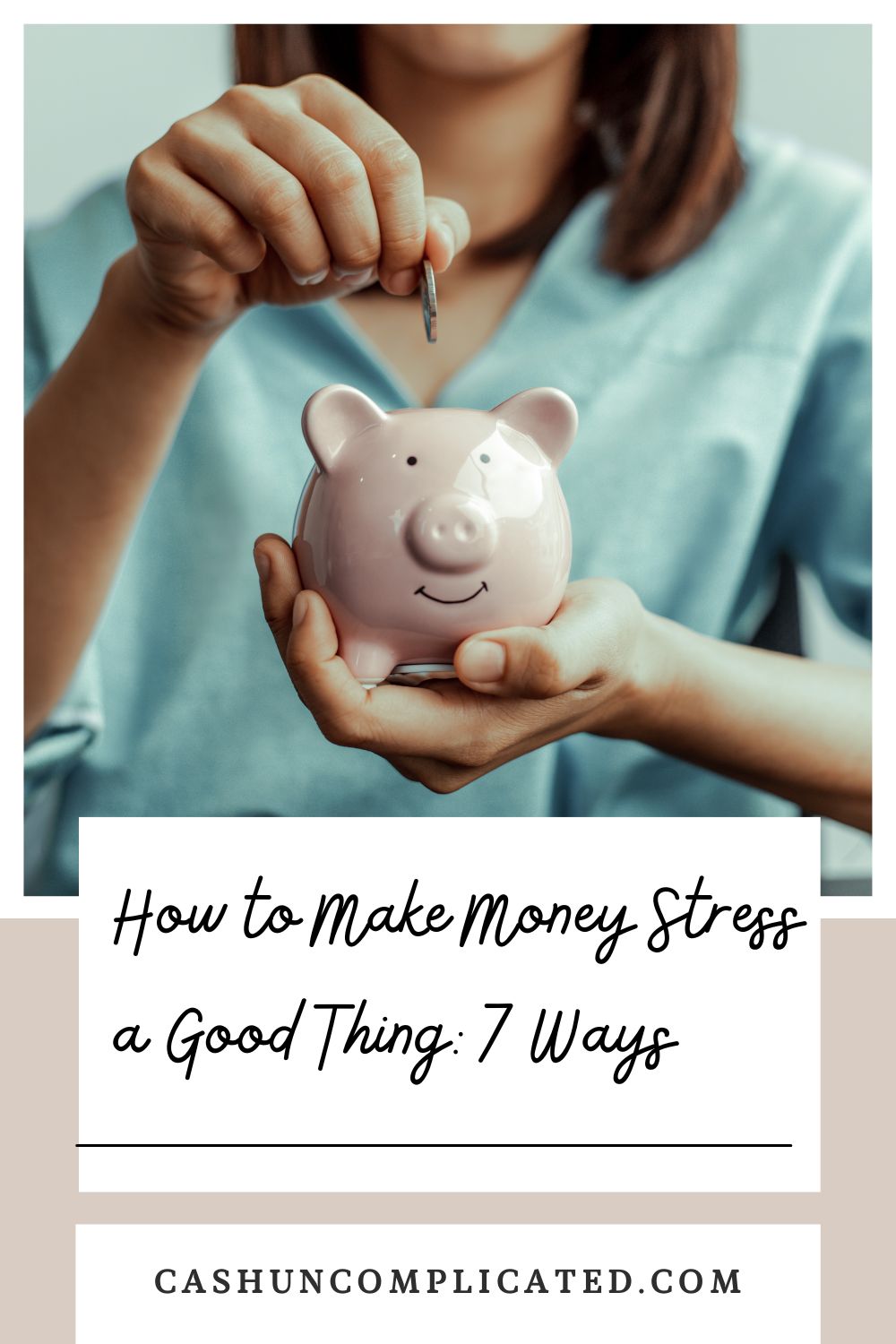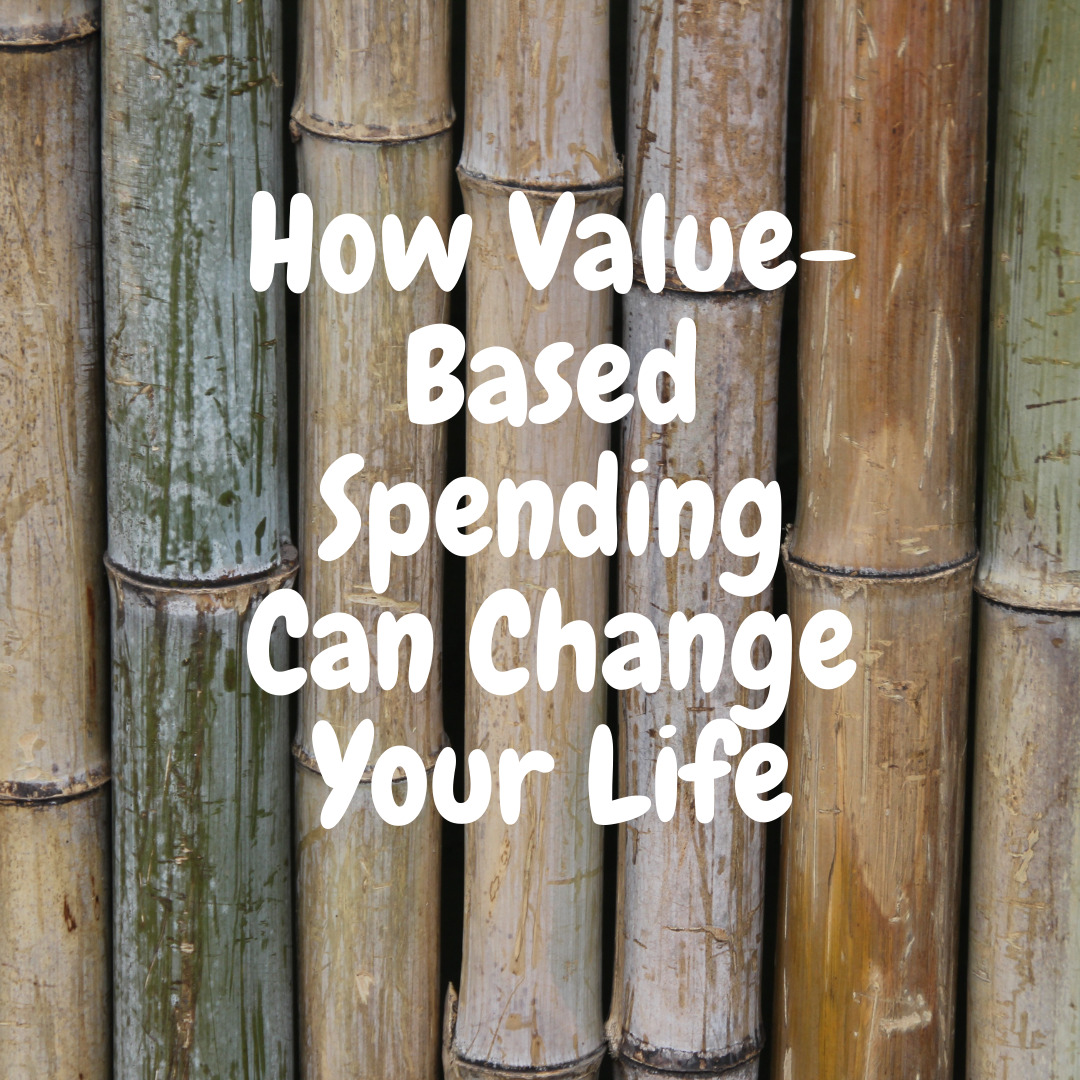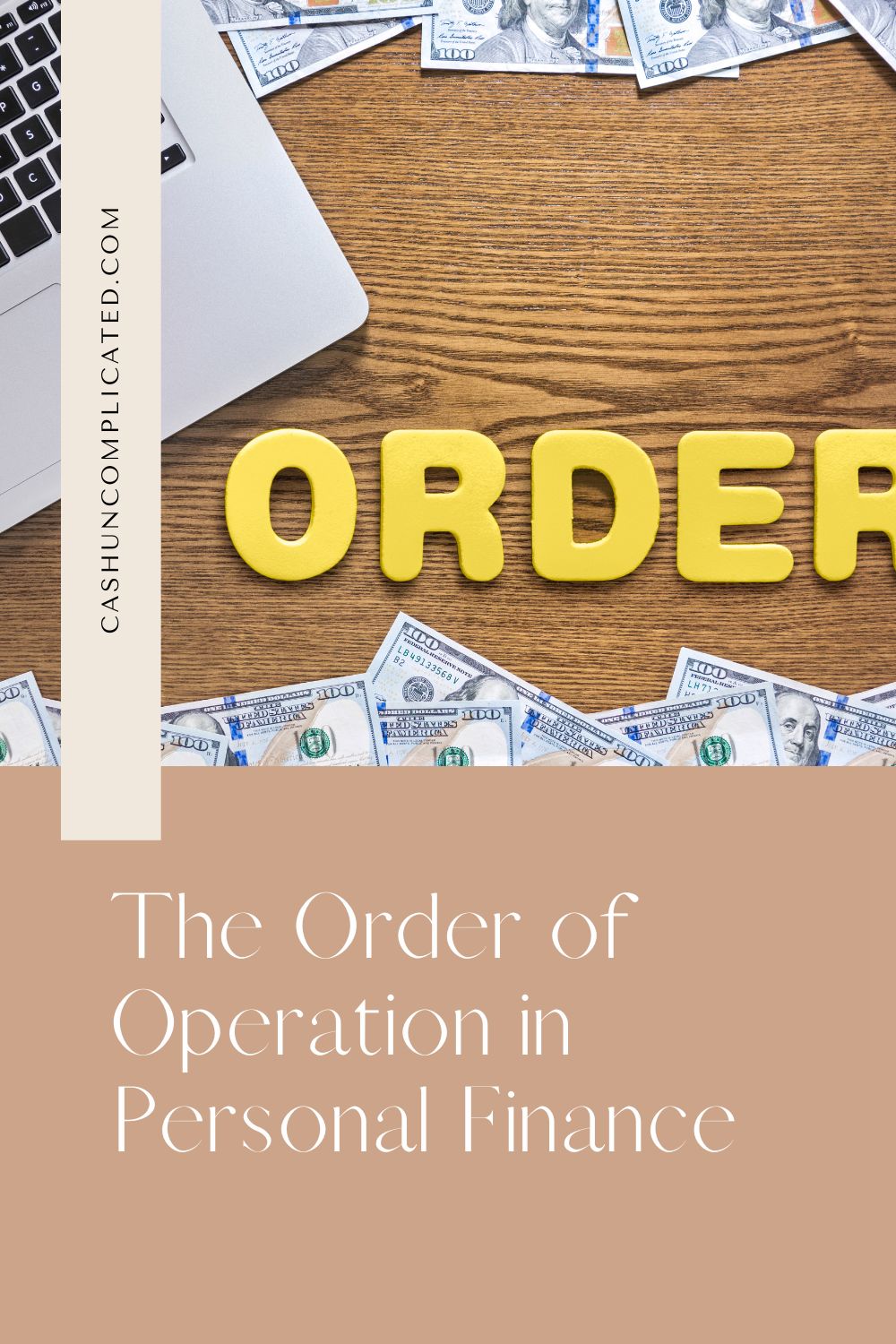Stress is generally considered to be a negative thing. It’s grouped into this category of “bad” and it hasn’t really been able to find its way out. There are books, podcasts, blogs, and other sources teaching people specifically how to reduce, manage, and cope with stress. I don’t believe that stress always has to be harmful though–in fact I think a little bit of money stress can actually be a good thing.
What is Money Stress?
Money stress is a feeling of uncomfortableness around money. It can manifest in the good and the bad–worry, mood changes, a call to action, uncertainty about the future, a change in behavior, arguments with your partner, and many other things. Money stress is generally considered bad and something we should all work to avoid.
Isn’t Money Stress Bad?
That’s the common perception about money stress–and stress in general. I think certain types of money stress are “bad”, but I also believe certain types of stress are actually a good thing.
A lot of money stress gets grouped into the “bad” category not because of the stress itself, but because of the way people handle it. Arguments with your significant other, alcohol and drug abuse, being on edge, bad mood, etc. This isn’t necessarily the stressors fault, it’s the way it’s perceived and handled.
Making Money Stress a Good Thing
Ok, so money stress isn’t necessarily bad, but can it actually be good? Or is that wishful thinking? I not only think that money stress can be good, but I’ve also experienced the positive effects from it. To name a few:
- Discomfort as a catalyst for change
- New habits
- Growth
- Fresh ideas
- Weeds out the bad
The remainder of this post will address these benefits, and more.
Number 1: Discomfort as a Catalyst for Change
Money stress can act as a catalyst for change. It creates a sense of discomfort, which leaves the individual several choices. Among them:
- Continue to be stressed and don’t act
- Be stressed and engage in negative coping strategies like arguing with spouse, substance abuse, etc.
- Address the source of the stress and engage in activities to fix it
I want to focus on the third bullet point as this is an example of how stress can be good. Identifying the stress, and then acting to change it is a positive. To illustrate the point, I’m going to give use myself as an example.
I’ve told this story in podcasts and other interviews, but it’s worth revisiting. When I was in my very early 30’s I had a weekend where I spent way too much money. I was out with friends and charging food and drinks on my debit card.
Long story short, I was looking at my bank statement the following Monday and was dismayed to see multiple overdraft charges. I wasn’t stressed or upset just because of the overdraft charges, but for my personal finance situation in general. These overdraft fees were just the tip of the iceberg for my money problems.
Here I was a little over 30 years old and acting like I had never seen a debit card in my life. That was a seminal moment for me because it was a catalyst for change. It hit me hard that my money behavior was completely unacceptable and not sustainable. I needed to change and this stressful situation was just the prompt I needed.
If I had the chance to replay that day, I wouldn’t change a thing. That wake-up call is exactly what I needed at the time and without it I might still be making terrible money decisions without it. Painful and stressful at the time, but beneficial long-term.
Related:
- Aaron Nannini of Cash Uncomplicated on the 5 Essentials for Smart Investing
- MI094: Cash Uncomplicated: Wealth Building Mindset w/Aaron Nannini
Number 2: Opportunity for Growth
Sometimes growth occurs because things are going great. More often than not though, growth occurs as a result of a challenge or problem. A few non-personal finance examples:
- Someone with high cholesterol permanently changes their diet
- A person with poor public speaking skills joins a group like Toastmasters
- Changing careers to something more enjoyable and relevant to your skillset
- A family moves to a different neighborhood with better schools for the children
Personal finance is no different from these other life challenges. And this is where money stress can be good. It creates temporary discomfort, but it’s also a huge opportunity for growth.
Someone living paycheck to paycheck feels the pain of being one bill away from financial problems so they make changes to get out of that cycle. Or the person in consumer debt has finally had enough so they hire a money coach, take a money course, or read a book like The Richest Man in Babylon or my book Cash Uncomplicated.
Behind the stress and challenges is the good–an opportunity for growth.
Number 3: New Habits
A lot of the issues I used to have about money came from bad habits. And almost all of the success I’ve had in the past few years has been due to good habits. Let’s start with the bad habits:
- Living paycheck to paycheck
- Faulty thinking
- Negative mindset
- Acceptance of ignorance
These habits created a lot of stress around money. Fortunately, there came a point in time where this stress actually turned into a positive because it inspired change to create new habits. The new habits took some time to develop (and they’re always a work in progress) but they are also life-changing habits.
For example, paying myself first allowed me to get out of the paycheck cycle and have the money to invest. Automating my money made it automatic to pay myself first. Creating money buckets helped me prioritize where my money goes. The list goes on and on.
Number 4: Fresh Ideas
Number four on the list of how money stress can be good is it can prompt fresh ideas. If you’ve ever had any stress around money (which I’m sure everyone has), then you know it’s downright uncomfortable.
Feelings of not having money for the next car repair, enough to go out to dinner, money to pay the credit card balance, etc. are all stressful. The good news is that these feelings are often a catalyst for fresh ideas. When things get bad enough, people have a tendency to come up with creative solutions.
Speaking from experience, I know some of my best ideas have come from necessity, or some type of pain. And in talking with many others about their life and personal finance journey, I know others have had very similar experiences.
Fresh ideas are critical to our growth and development. Without them, we are stagnant and will keep doing the same thing over and over again because it’s what has always been done. The cure for this is a new way of thinking, and acting on those thoughts.
Number 5: Forces Solutions
Think back to high school or college when you had a paper due. The assignment was given several weeks ago but you waited until the last minute. Now it’s the day before and you still haven’t started. But sure enough, by the next morning, the paper is done and turned in.
You found a way to get it done. In this example, urgency forced a solution. Maybe you went to the library to knock it out or locked yourself up in your room away from the noise of the house or dorm room. Whatever it was, you got it done.
The same principle can apply to money stress. Much like the school assignment, money stress can create some kind of discomfort, such as:
- An upcoming bill
- Unexpected car repair
- A large household item that needs to be replaced or repaired
The stress of these types of things forces most people into finding solutions. That can mean working overtime, getting a side hustle, selling an item(s) you don’t value anymore, working hard to get a promotion to make more money, etc. Although the money stress was unpleasant at the time, it led to ingenuity and solutions–making you better off than before the stressor.
Number 6: Inspires Action
Piggybacking off number five on the list, the sixth way money stress can be good is that it inspires action. Most people don’t take action until there’s a reason to. If things are going great, not many people are going to be motivated to take action. Why change a good thing, right?
But when there’s a money stressor, things aren’t so good anymore. Which inspires action to make things better. And the good thing is that oftentimes the action taken creates a permanent positive in your life.
Using the example above at working harder in your career to earn a promotion earning more money. The money stress (household item breaking, car repair, etc.) necessitated action (working harder to earn the promotion). Long after the stressor (item breaking) is removed, the positive results (the promotion and increased pay) is still there.
Number 7: Weeds Out the Bad, Keeps the Good
Last on the list of how money stress can be good is that it weeds out the bad and keeps the good. Much financial stress is a result of over-consumption and living beyond your means. When money stress hits, it’s time to reassess what you really need and want.
For many people, this is a very powerful exercise and they realize they really don’t need many of the things they have been buying. This directly relates to a principle I live by, value-based spending. Which is deeply assessing your values and only purchasing things/experiences that directly relate to those values.
Every now and then it’s good to literally and figuratively “clean out the closet.” Keep the good, and remove the unwanted. That cleanses and declutters, which is a freeing experience. Money stressors are often a catalyst for this action, which ultimately is a good thing.
Conclusion
Things aren’t always what they appear on the surface. Something that appears bad can actually be good in the long run. And something that appears good, can end up being bad. The same goes for money stress.
While money stress appears like a bad thing at first, there are a lot of positives that come from it. For me, the positives stemming from my money stress included financial clarity, writing a book, owning more real estate than I ever thought I would, and much more. And I know I’m not the only one, many people I’ve talked come with very similar stories.
How can money stress be good for you?











